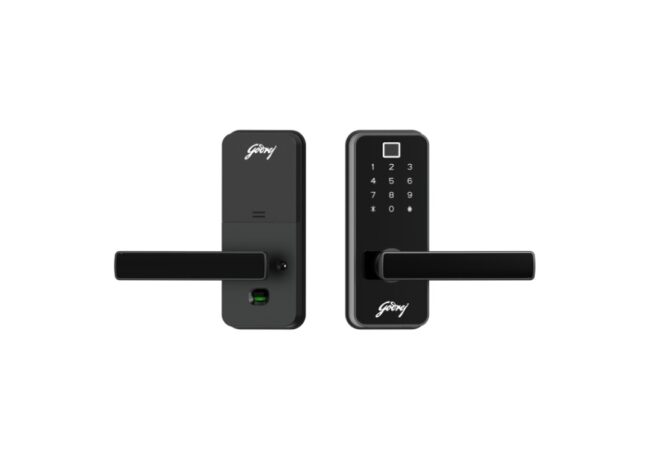
Building a Strong Personal Budget Plan For Your Money
Table of Contents
- Introduction
- Understanding Personal Budgets: Foundations for Financial Success
- Assessing Your Financial Situation: Where Does Your Money Go?
- Creating Your Personal Budget: Step-by-Step Guide
- Utilizing Free Budget Templates: Tools for Effective Budgeting
- Saving Money: Strategies for Cutting Costs and Increasing Savings
- Investing in Your Future: Allocating Funds for Long-Term Goals
- Managing Debt: Techniques for Debt Reduction and Financial Freedom
- Cultivating Financial Discipline: Staying on Track with Your Budget
- Maximizing Your Budget: Tips for Optimizing Financial Resources
- Conclusion: Taking Control of Your Financial Future
- FAQ’s: Common Questions About Personal Budgeting
Introduction
In today’s fast-paced world, taking control of your money is essential for achieving financial stability and security. Building a strong personal budget plan serves as the cornerstone of effective financial management, empowering individuals to track expenses, save money, and achieve their financial goals. In this comprehensive guide, we’ll explore the fundamentals of personal budgeting, provide practical tips for creating and managing a budget, and offer strategies for optimizing your financial resources to build a brighter future.
Understanding Personal Budget: Foundations for Financial Success
Before diving into the specifics of personal budgeting, it’s crucial to understand what a budget is and why it’s important. A personal budget is a financial plan that outlines your income, expenses, and savings goals over a specific period, typically a month. By tracking your income and expenses, you gain insight into your financial habits and can make informed decisions to prioritize spending, cut costs, and achieve your financial objectives.
Assessing Your Financial Situation: Where Does Your Money Go?
Assessing your present financial status is the initial stride in constructing a robust personal budget plan. This involves gathering information about your income, expenses, debts, and savings. By analyzing your financial habits and identifying areas where you can make improvements, you can lay the groundwork for creating a budget that aligns with your goals and priorities.
Creating Your Personal Budget: Step-by-Step Guide
With a clear understanding of your financial situation, it’s time to create your personal budget to get rich. Start by listing all sources of income, including wages, salaries, and any additional sources such as rental income or side hustles. Next, track your expenses by categorizing them into fixed expenses (e.g., rent, utilities) and variable expenses (e.g., groceries, entertainment). Allocate a portion of your income to each expense category, ensuring that your total expenses do not exceed your total income.
Utilizing Free Budget Templates: Tools for Effective Budgeting
Creating a budget from scratch can be daunting, but fortunately, there are numerous free budget templates available online to streamline this process. These templates provide pre-designed spreadsheets or software tools that make it easy to track income, expenses, and savings goals. By utilizing free budget templates, you can save time and effort while gaining greater visibility into your financial situation and making more informed decisions.
Saving Money: Strategies for Cutting Costs and Increasing Savings
Saving money is a critical component of any personal budget plan. By reducing expenses and increasing savings, you can build a financial cushion for emergencies, achieve your short-term goals, and work towards long-term objectives such as retirement or homeownership. Explore strategies for cutting costs, such as negotiating bills, reducing discretionary spending, and taking advantage of discounts and rewards programs.
Investing in Your Future: Allocating Funds for Long-Term Goals
In addition to saving money, investing is essential for building wealth and achieving long-term financial success. Whether you’re saving for retirement, education, or a major purchase, allocating funds towards your long-term goals is crucial. Explore different investment options, such as stocks, bonds, mutual funds, and retirement accounts, and consider seeking guidance from a financial advisor to develop an investment strategy tailored to your goals and risk tolerance.
Managing Debt: Techniques for Debt Reduction and Financial Freedom
Debt can be a significant obstacle on the path to financial freedom, but with the right strategies, it’s manageable. Explore techniques for debt reduction, such as the debt snowball or debt avalanche method, and consider consolidating high-interest debt to lower your overall interest payments. By prioritizing debt repayment and staying disciplined, you can eliminate debt and pave the way for a brighter financial future.
Cultivating Financial Discipline: Staying on Track with Your Budget
Building a personal budget plan is only the first step; staying disciplined and sticking to your budget is equally important. Cultivate financial discipline by tracking your spending, avoiding impulse purchases, and regularly reviewing your budget to ensure it aligns with your goals and priorities. By staying disciplined and making conscious financial decisions, you can stay on track towards achieving your financial objectives.
Maximizing Your Budget: Tips for Optimizing Financial Resources
Finally, maximize your budget by exploring ways to optimize your financial resources. This includes finding ways to increase your income through side hustles or career advancement, as well as maximizing the return on your savings and investments. By continuously seeking opportunities to optimize your financial resources, you can accelerate your progress towards financial freedom and achieve your goals faster.
Conclusion: Taking Control of Your Financial Future
In conclusion, building a strong personal budget plan is essential for taking control of your money and achieving your financial goals. By understanding your financial situation, creating a budget, and staying disciplined, you can optimize your financial resources, reduce debt, and work towards a brighter financial future. Start implementing these strategies today and take control of your financial future.
FAQ’s: Common Questions About Personal Budgeting
- How do I determine my budgeting priorities?
- What are some effective strategies for cutting expenses?
- How can I increase my income to supplement my budget?
- What should I do if my expenses exceed my income?
- How often should I review and adjust my budget?
Recommended Article: Obtain Your Ideal Body Image In 10 Quick Steps


